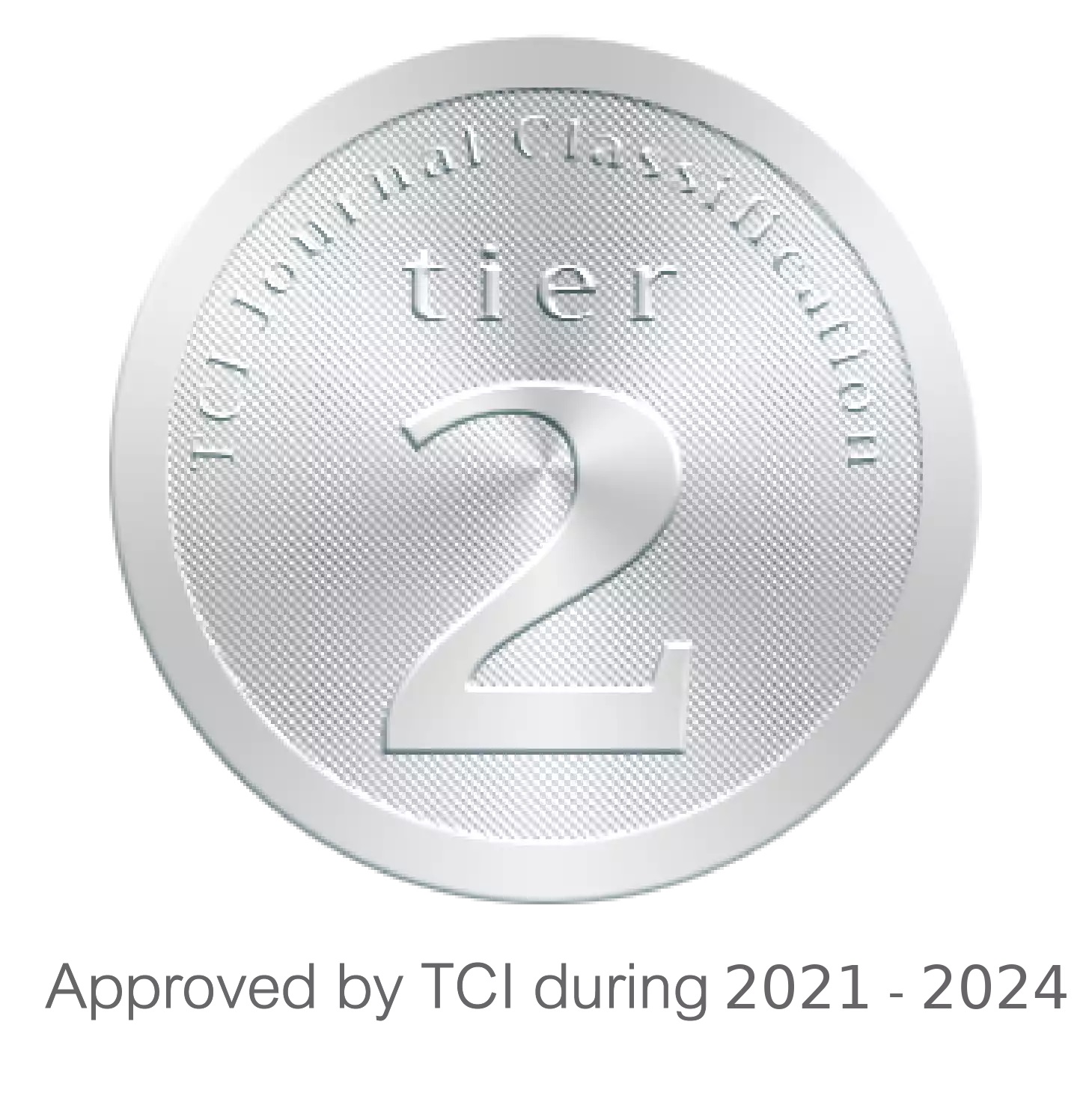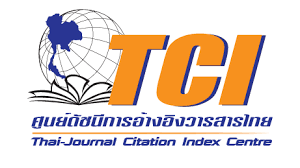การท่องเที่ยวเชิงศาสนา ความเชื่อของบุคคล การเรียนรู้ส่วนบุคคล และพฤติกรรม การท่องเที่ยว: หลักฐานเชิงประจักษ์จากนักท่องเที่ยวพระธาตุพนมในประเทศไทย
คำสำคัญ:
การท่องเที่ยวเชิงศาสนา , การเรียนรู้ส่วนบุคคล , พฤติกรรมการท่องเที่ยว , นักท่องเที่ยวพระธาตุพนมบทคัดย่อ
การวิจัยนี้มีวัตถุประสงค์เพื่อทดสอบผลกระทบของการท่องเที่ยวเชิงศาสนา ความเชื่อของบุคคล และการเรียนรู้ส่วนบุคคลที่มีต่อพฤติกรรมการท่องเที่ยวของนักท่องเที่ยวพระธาตุพนมในประเทศไทย ซึ่งนักท่องเที่ยวพระธาตุพนมในประเทศไทย จำนวน 400 คนเป็นกลุ่มตัวอย่างที่ใช้ในการวิจัย และใช้การวิเคราะห์การถดถอยพหุคูณเชิงชั้นในการทดสอบผลกระทบทางตรงและเชิงแทรก ผลลัพธ์การวิจัย พบว่า การท่องเที่ยวเชิงศาสนา ความเชื่อของบุคคล และการเรียนรู้ส่วนบุคคล มีผลกระทบที่สำคัญเชิงบวกต่อพฤติกรรมการท่องเที่ยว นอกจากนี้ ความเชื่อของบุคคลและการเรียนรู้ส่วนบุคคล มีผลกระทบเชิงแทรกที่จำเป็นต่อความสัมพันธ์ระหว่างการท่องเที่ยวเชิงศาสนากับพฤติกรรมการท่องเที่ยว ดังนั้น การท่องเที่ยวเชิงศาสนามีบทบาทสำคัญที่มีอิทธิพลและผลกระทบ และสามารถชักจูงและจูงใจต่อพฤติกรรมของนักท่องเที่ยวให้มาท่องเที่ยวและกราบไหว้สักการะพระธาตุพนมในประเทศไทย และความเชื่อของบุคคลและการเรียนรู้ส่วนบุคคลสามารถส่งเสริม สนับสนุน และผลักดันทั้งทางตรงและทางอ้อมให้นักท่องเที่ยวมาและกลับมาท่องเที่ยวและกราบไหว้สักการะพระธาตุพนมมากขึ้น ด้วยเหตุนี้ ผู้บริหารพระธาตุพนมในประเทศไทยและตัวแทนหน่วยงานราชการ สามารถส่งเสริมและยกระดับการท่องเที่ยวเชิงศาสนาให้มีความยั่งยืน โดยต้องบำรุงรักษา จัดการ และสร้างสรรค์คุณลักษณะ คุณประโยชน์ และคุณค่าของพระธาตุพนมให้เป็นอย่างดี เพื่อจูงใจและชักนำให้นักท่องเที่ยวในประเทศไทยและต่างประเทศให้มาและกลับมาท่องเที่ยวและกราบไหว้สักการะพระธาตุพนมอย่างต่อเนื่อง
##plugins.generic.usageStats.downloads##
เอกสารอ้างอิง
Abu-Doleh, J. D., & Hammou, M. D. (2015). The Impact of psychological contract breach on organizational outcomes: The moderating role of personal beliefs. Journal of Competitiveness Studies, 23(1/2), 34-54.
Ahmad, A., Jamaludin, A., Zuraimi, N. S. M., & Valeri, M. (2021). Visit intention and destination image in post-Covid-19 crisis recovery. Current Issues in Tourism, 24(17), 2392-2397.
Ajzen, I. (1991). The theory of planned behavior. Organizational Behavior and Human Decision Processes, 50, 179–211.
Ariffin, S. K., Aun, T. L., & Salamzadeh, Y. (2018). How personal beliefs influence consumer attitude towards online advertising in Malaysia: To trust or not to trust? Global Business and Management Research: An International Journal, 10(1), 30-47.
Balbastre, F., Oltra, V., Martinex, J. E., & Moreno, M. (2003). Individual, group and organizational learning levels and three interactions. Management Review, 1(3), 253-267.
Hair, J. F., Black, W. C., Babin, B. J., & Anderson, R. E. (2010). Multivariate Data Analysis: A Global Perspective, 7th ed, New Jersey: Person Prentice Hall.
Heidari, A., Yazdani, H. R., Saghafi, F., & Jalilvand, M. R. (2021). A networking approach to analyzing religious tourism businesses: The case of Al-Atabat Al-Aliyat in Iraq. Journal of Islamic Marketing, 12(2), 427-450.
Jalilvand, M. R., & Semiei, N. (2012). The impact of electronic word of mouth on a tourism destination choice: Testing the Theory of Planned behavior (TPB). Internet Research, 22(5), 591-612.
Kartal, B., Tepeci, M., & Atli, H. (2015). Examining the religious tourism potential of Manisa, Turkey with a marketing perspective. Tourism Review, 70(3), 214-231.
Kline, D. A. (2012). The quaker journey and the framing of corporate and personal belief. Journal of the Society for Psychology Anthropology, 40(3), 277-296.
Krejcie, R. V., & Morgan, D. W. (1970). Determining sample size for research activities. Educational and Psychological Measurement, 30, 607-610.
Kusemererwa, C., Munene, J. C., Laura, O. A., & Balunywa, J. W. (2020). Individual learning behavior: Do all its dimensions matter for self-employment practice among youths in Uganda? Journal of Enterprising Communities: People and Places in the Global Economy, 14(3), 373-396.
Leri, I., & Theodoridis, P. (2021). How do personality traits affect visitor’s experience, emotional stimulation and behavior? The case of win tourism. Tourism Review, 76(5), 1013-1049.
Leong, Q., Karim, S. A., Awang, K. W., & Baker, A. Z. A. (2017). An integrated structural model of gastronomy tourists’ behavior. International Journal of Culture, Tourism and Hospitality Research, 11(4), 573-592.
Mutonyi, B. R., Slatten, T., & Lien, G. (2020). Empowering leadership, work group cohesiveness, individual learning orientation, and individual innovative behavior in the public sector: Empirical evidence from Norway. International Journal of Public Leadership, 16(2), 175-197.
Shepherd, R. (2010). The relationship between personal belief and inspection judgement. British Journal of Religious Education, 32(3), 215-227.
Shinde, K. A., (2015). Religious tourism and religious tolerance: Insights from pilgrimage sites in India. Tourism Review, 70(3), 179-196.
Tajeddini, K., & Ratten, V. (2020). The moderating effect of brand orientation on inter-firm market orientation and performance. Journal of Strategic Marketing, 28(3), 194-224.
Tickle, E. L., Brownlee, J., & Nailon, D. (2005). Personal epistemological beliefs and transformational leadership behaviors. Journal of Management Development, 24(8), 706-719.









